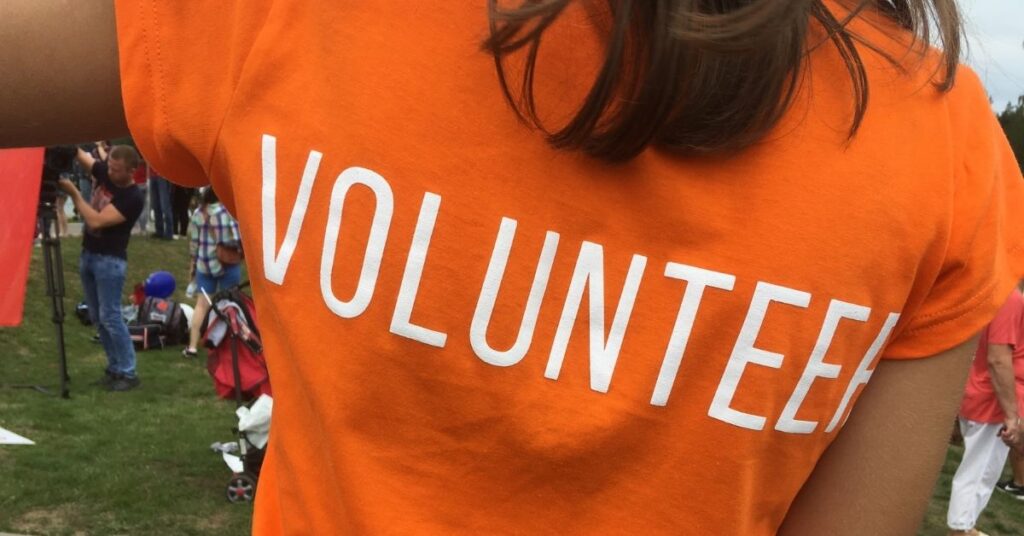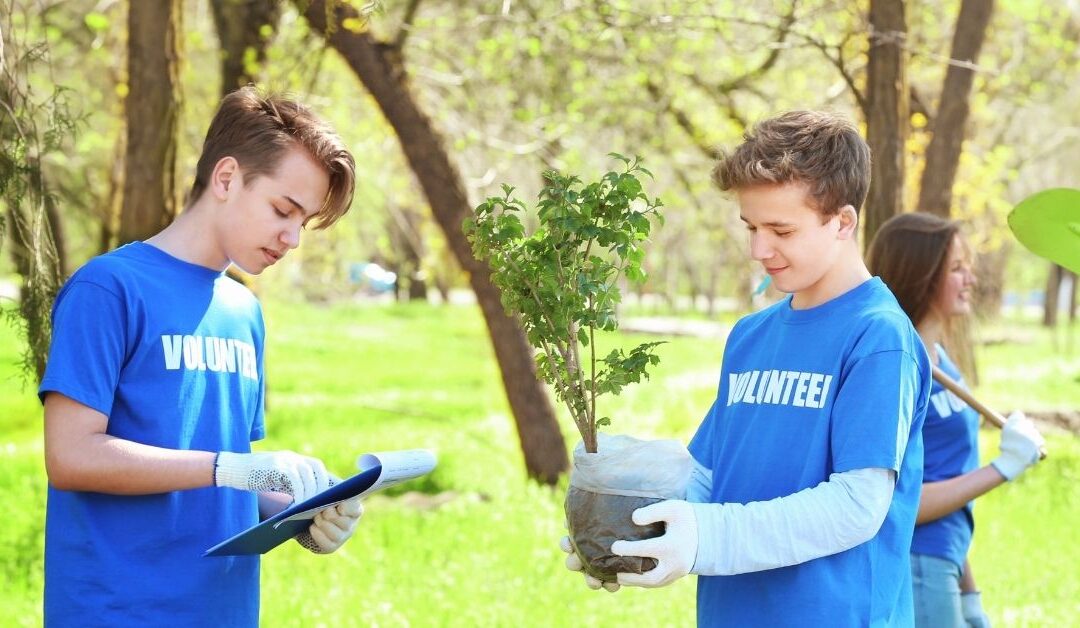Giving back to our community helps us feel part of something bigger and provides a sense of satisfaction that we are helping others. In fact, studies have shown that people who volunteer feel happier. Volunteering helps our autistic and ADHD children and teenagers too. Keep reading to learn nine ways volunteering can have a positive effect on our children and teens.
Why volunteer?
Volunteering helps you connect with your community and makes you feel like you are making a positive difference where you live. It gives you a sense of purpose and allows you to better understand the struggles and difficulties that other people experience daily in their lives. It also helps you and your family (if you volunteer together) to:
- Meet new people
- Socialize in a different way
- Expand your network
- Increase your self-esteem
- Reduce stress
- Increase your brain functioning (e.g., problem solving, memory)
- Open up new career opportunities
Our experiences with volunteering

I have a long history of volunteering, beginning as a child when my parents volunteered on a fairly regular basis through our church. My dad also served in the leadership of our local Veterans of Foreign Wars (VFW). Therefore, I was exposed to different types of volunteer activities a lot while growing up.
When I was in college, I was part of a co-ed service fraternity called Alpha Phi Omega and participated in a lot of volunteer activities throughout my college career. Then after I graduated, I became involved in a local volunteer group for young adults. Currently, I serve as a volunteer board member of our local Autism Community Connection.
As our son J has gotten older, we’ve been able to do some volunteer activities through our church. He usually enjoys them, and I can tell he really enjoys being able to help others. In fact, one of the most memorable was a poverty simulation that we participated in a few years ago. It was an active simulation in which we were put into different groups that were “families” for the simulation. Real family members were split amongst the different groups, and it was an eye-opening experience for us all. It was a wonderful opportunity for us to gain knowledge and better understand what people go through when they are stuck in the cycle of poverty.
Ways volunteering helps autistic and ADHD teenagers
When I search “volunteering and autism” on Google, the results include many ways that people can volunteer to help autism organizations. Yet, while our autistic children and we as families can benefit from others helping us, it is just as beneficial for our autistic and ADHD children and teens to volunteer themselves. Here are nine ways that volunteering helps our autistic and ADHD teenagers.
1. Find out what type of work they enjoy
One of the biggest indicators of future employment success for autistic teenagers is to hold a part-time job during high school. Currently, we are in the process of helping our son J find his first part-time job since he is now in his mid-teens. Volunteering through different activities can help your teen figure out what types of work they enjoy. Do they like sorting and organizing, serving customers or assembling materials?
2. Learn basics for a job
Volunteering can help your teen learn some of the basics they need to know for having a job. Those include:
- being punctual
- wearing appropriate attire
- following instructions
- understanding what’s expected in a workplace
- learning how to work under a manager

3. Be part of a team
For many volunteer activities, we need to work in teams to get a job done. This is a great way for our teens to learn about teamwork and experience the satisfaction in completing tasks together with a group.
4. Boost confidence
Volunteering can boost our teen’s confidence as they learn how to do something new that will help others.
5. Meet new people and enhance social skills
Volunteer experiences allow our teens to meet new people and practice their social skills in a different setting. Who knows? They even may make a new friend or two!
6. Build a resume
When it comes time for our teen to find their first part-time job or even after they begin working, volunteering is great experience to list on their resume!
7. Help their community
Feeling the sense of belonging in our community is important. Volunteering can increase the sense in our teens and know they are helping those in their community.
8. Feel good about a job well done
Volunteering can help our teens feel good about doing a job well. Once they’ve completed their volunteer session, they can look at what they’ve accomplished and be proud of what they’ve done to help others.
9. Learn responsibility
When our teens volunteer, they are given responsibilities for the activity. This is a great way for them to learn about responsibility in additional ways outside of home and school.
How to find volunteer opportunities

So, how can you find volunteer opportunities for your teen? If you belong to a church or other organization, they may have activities already planned for volunteering. You also can check your local food pantries, homeless shelters, animal shelters, community gardens and soup kitchens to see if they need volunteers.
For other volunteering opportunities, you can check out these websites:
- Volunteermatch.org provides a list of volunteer activities by your zip code.
- Idealist.org lets you search volunteer opportunities by types of skills or activities in your city or town.
- AllforGood.org provides a list of volunteer activities by city.
- GiveGab.org has a page where you can search for volunteer events in your community.
- JustServe.org provides list of volunteer activities by location.
- GozAround.org not only helps you find volunteer opportunities, but it also provides a place where you can set volunteer goals and track your hours, all with gamification.
Has your teen volunteered? If so, how did volunteering help your autistic and ADHD teenager? Leave a comment below so that we can share and support one another on this journey!








